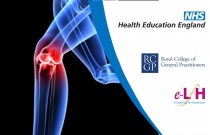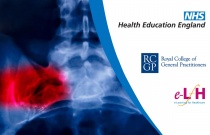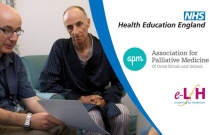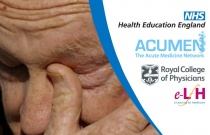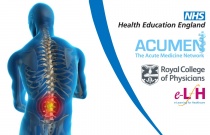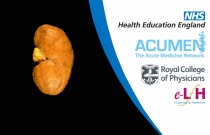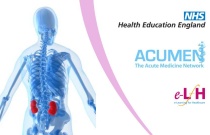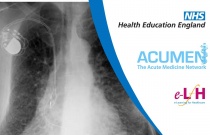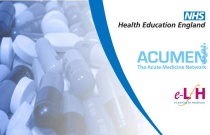Intervening to Reduce Risk - Promoting and Teaching Condom Use
Philippa Matthews
0.50 Hours
This is the last of the four complementary sessions on interventions to reduce risk. In this session we will focus on how to teach and promote the safe and consistent use of condoms. This has been written in conjunction with Sexual Health in Practice (SHIP). Please see acknowledgements for more details.
Managing CFS/ME In Adolescence
Anna Gregorowski
0.50 Hours
This session introduces the learner to the management of chronic fatigue syndrome/myalgic encephalomyelitis (CFS/ME) in young people. It examines the different interventions and strategies and when it is most appropriate to use these.
Introduction to Physical Examination
Roger Tisi
0.50 Hours
This session introduces the Physical Examinations video module, which demonstrates how to carry out a range of focused, problem-based physical examinations in general practice. The module is useful for GPs at all stages in their career, including those preparing for the Clinical Skills Assessment.
Managing a Patient with Hyperthyroidism in Primary Care
Simon Page - Consultant Physician and Endocrinologist
0.50 Hours
This session describes the causes, initial investigation and treatment options for patients who present to a general practitioner with hyperthyroidism.
Managing Substance Use Problems In Routine Clinical Practice
Wendi Murphy Improving Data Lead for Children, Family and Maternity at the Department of Health
0.50 Hours
Since some high-profile cases, agencies that deal with young people have an increased responsibility to work with each other to improve outcomes for young people who misuse substances. This session outlines the responsibilities of some of the agencies involved and suggests current assessment, screening and management models.
Foreign Bodies Trauma and Burns Affecting the Eye
Stella Hornby - Module Editor: Eye Problems
0.25 Hours
This session describes the management of superficial foreign bodies in the eye, corneal abrasions, and how to identify a patient with serious ocular injury. This session was reviewed by Sally Higginbottom and last updated in February 2015.
Managing Knee Pain
Michael Burke - General Practitioner, Wirral
0.50 Hours
This session considers the assessment, examination and treatment of knee pain in primary care. The common causes of acute, chronic and referred knee pain will be described. Management of osteoarthritis (including NICE guidelines) and specific advice for athletes will be discussed. This session was reviewed by Richard Stones and....
Medical Assessment And Management Of Obesity
Helen Croker - Clinical Research Dietitian, UCL and Russell Viner - Consultant in Adolescent Medicin
0.50 Hours
This session will describe the key elements in the medical assessment and management of adolescent obesity and its relation to type 2 diabetes and insulin resistance. It will also cover the identification of secondary causes of obesity. This session was reviewed by Louise Lam, Hilda Mulrooney and Claire Cheminade and updated in....
Managing Sports Injuries in Primary Care
Kay Brennan - GP, London
0.25 Hours
This session discusses a selection of the sports injuries that commonly present to primary care practitioners. This session was reviewed by Richard Stones and last updated in June 2014.
Hip Pain
Paul Partington MBBS FRCS FRCS (T&O) - Consultant Orthopaedic Surgeon, Northumbria Healthcare NHS Fo
0.50 Hours
This session covers the causes, investigation and management of hip pain in adults, and includes a discussion of the indications for referral and complications of total hip replacement.
Obesity In Young People
Rachel Pryke - GP, Redditch
0.50 Hours
This session describes recent trends, causes and sequelae of obesity in adolescence and assesses treatment options, including common dieting and exercise approaches. This session was reviewed by Hilda Mulrooney and Louise Lam, Bethan Hamilton, Lisa Mabbs and Claire Cheminade and updated in March 2017.
Intravenous Induction Agents (anaesthesia)
Sue Hill
This session introduces the novice anaesthetist to three of the commonly used intravenous induction agents: propofol, thiopental and etomidate.
Inhalational Anaesthetic Agents
Tom Peck
This session introduces the pharmacology of two commonly used volatile agents and nitrous oxide. The key concepts of minimum alveolar concentration (MAC) and the blood:gas solubility coefficient are discussed.
Gases and Vapours (anaesthesia)
William Boaden
This session provides an outline of the gas laws that govern the behaviour of gases found in anaesthesia.
General Preoperative Measures (anaesthesia)
Kath Jenkins
This session explores the preoperative issues of (1) Restriction of oral food and fluid prior to anaesthesia and (2) Venous thromboembolism prophylaxis, to increase patient safety and decrease perioperative morbidity.
Introduction to Principles of Advance Care Planning
Sheila Joseph
0.50 Hours
This session provides an introduction to advance care planning within the context of end of life care. This session was reviewed by Christina Faull and last updated in November 2014.
Investigation and Management of Acute Confusion
Patrick Sutton
0.50 Hours
This session focuses on the recognition, investigation and management of delirium. It also identifies common illnesses that might be confused with delirium and highlights prevention techniques.
Clinical Findings Associated with Spinal Cord Compression
Imtiaz Shah
0.25 Hours
This session discusses the clinical findings associated with spinal cord compression.
Management of Nausea and Vomiting in Palliative Care
Saskie Dorman
This session provides a framework for the drug and non-drug management of nausea and vomiting in end of life care. This session was reviewed by Saskie Dorman and Christina Faull and last updated in June 2015.
Management of Sore Mouth and Other Oral Problems vin Palliative Care
Sim Lan Koon and Jason Ward
Oral problems can impact greatly on the quality of life of patients receiving end of life care. This session provides a framework for the assessment and management of a sore mouth and other oral problems. This session was reviewed by Jason Ward, Sim Koon and Christina Faull and last updated in January 2015.
Goodpasture's Disease Signs and Symptoms
Prina Ruparelia
0.25 Hours
This session will discuss the symptoms and signs of Goodpasture’s disease.
Management of Chronic Kidney Disease
Colin Jones
0.50 Hours
This session describes the causes and metabolic complications of chronic kidney disease.
Investigation and Management of Acute Kidney Injury
Helen Ford
This session considers the definition, assessment, investigation and management of acute kidney injury (AKI). The principles of fluid and drug prescribing are discussed.
Interstitial Lung Disease and the Acute Medical Take
Melissa Heightman
0.25 Hours
This session outlines a variety of ways in which interstitial lung disease (ILD) may present on the acute medical take.
Drug-induced Cough and Bronchospasm
Salman Haider
0.25 Hours
This session reviews the possible presentations of drug-induced cough and its causes.








